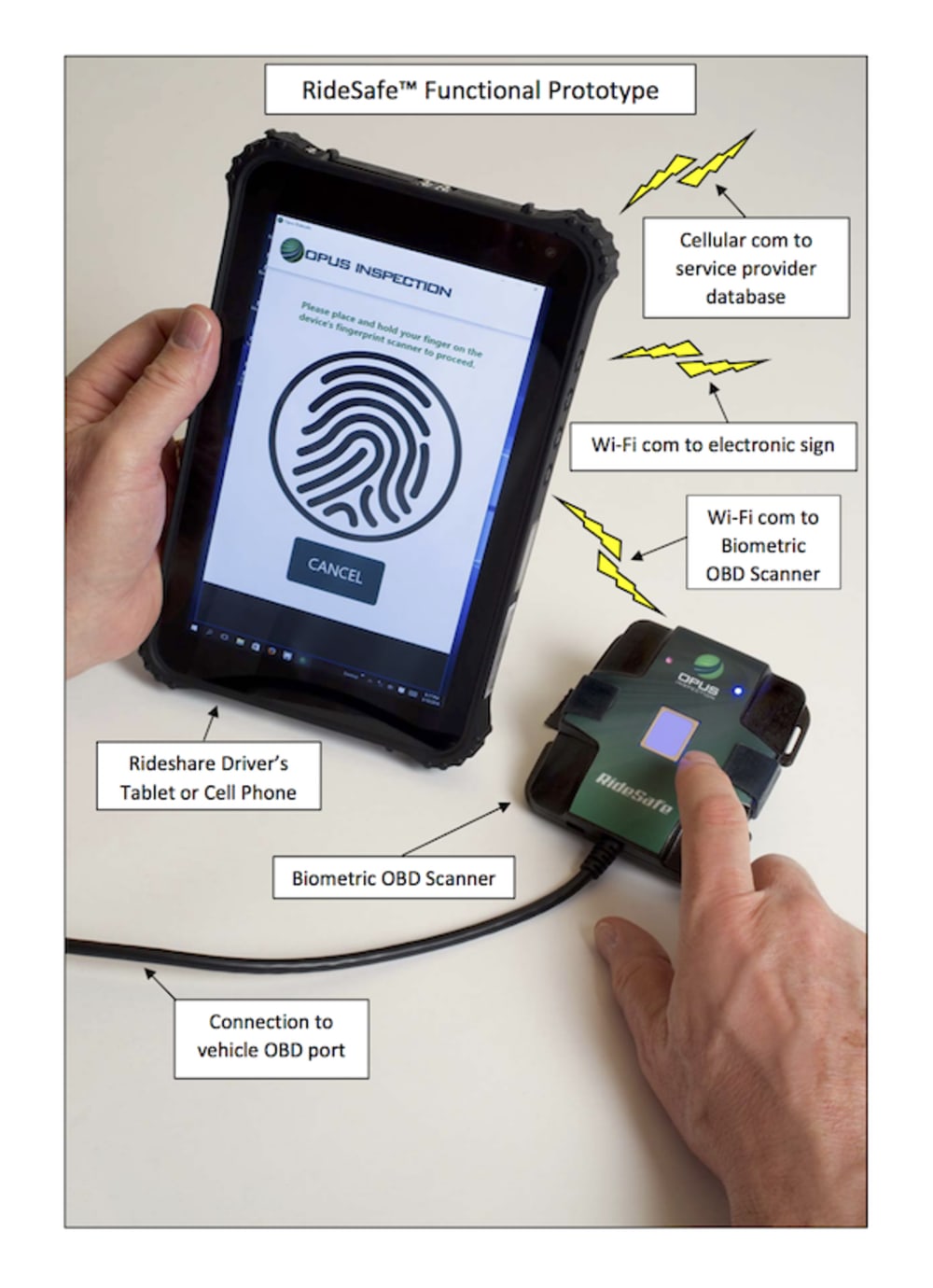
The explosive growth of ridesharing has engendered problems of imposter drivers, unsafe vehicles, ride identification uncertainty, and unmonitored service. These problems impact passenger safety, passenger stress, driver security, and service efficiency. RideSafe™ mitigates these problems.
Imagine rideshare passengers picking a private code word when booking a ride and later seeing that word electronically displayed in the window of their arriving vehicle – but only after the Vehicle Identification Number (VIN) has been electronically authenticated and the driver identity has been biometrically confirmed via the service provider database. Also imagine providing every passenger with an electronic vehicle safety and emissions check report using the vehicle’s On Board Diagnostic (OBD) system. Finally, imagine providing rideshare drivers with an automated, one-button, ‘panic’ call mechanism for emergency response or access to help desk intervention regarding an unruly customer. No rideshare company could offer such enhanced safety and ride identification efficiency to passengers and drivers until RideSafe™.
At its heart RideSafe™ comprises a small electronic dongle the size of a cigarette pack. In addition to a ‘panic’ button, the dongle features an embedded electronic fingerprint scanner and a cable connecting to the vehicle OBD port. The full system also includes an electronic sign displayed in the vehicle window and communicating wirelessly with the driver’s cell. (See illustration.)
Inside the dongle, circuitry and software facilitate Wi-Fi communication with the driver’s cell, operation of the fingerprint scanner, response to the panic button, and OBD communication to the vehicle’s network of processors thereby enabling electronic VIN identification and determination of vehicle safety and emissions status. The driver’s cellphone has a RideSafe™ app communicating to the remote service provider database and subsequently to the passenger cell phone employing a corresponding RideSafe™ app.
When a passenger books a ride via their cell, they’re asked to choose a code word. Once the ride is accepted by a driver, the OBD device interrogates the vehicle to verify it is registered with the service provider and also retrieves any diagnostic codes suggesting vehicle safety or emissions issues. In parallel, the RideSafe™ application asks the driver to place their finger on the scanner. Once the vehicle identification and the driver biometrics are confirmed, the passenger’s code word is down loaded to the driver’s app and wirelessly relayed to the electronic sign. In parallel, the vehicle’s safety and emissions information is transmitted to the passenger and the passenger is instructed to look for their code word displayed on an approaching vehicle.
Even at busy venues, passengers can quickly identify their approaching ride with secure knowledge that the vehicle and the driver are legitimate and the vehicle is safe and green. Once the passenger is onboard, the driver enjoys the security of knowing a single depression of the RideSafe™ panic button can signal for emergency assistance and/or intervention via service desk calls to both the driver and the passenger. Hence RideSafe™! The cost of RideSafe™ hardware, software, and services can be amortized over millions of rides per day for pennies per ride. (Patent Pending)
-
Awards
-
 2017 Top 100 Entries
2017 Top 100 Entries
Like this entry?
-
About the Entrant
- Name:Tom Fournier
- Type of entry:teamTeam members:Tom Fournier Lothar Geilen Brian Herron
- Software used for this entry:proprietary
- Patent status:pending

